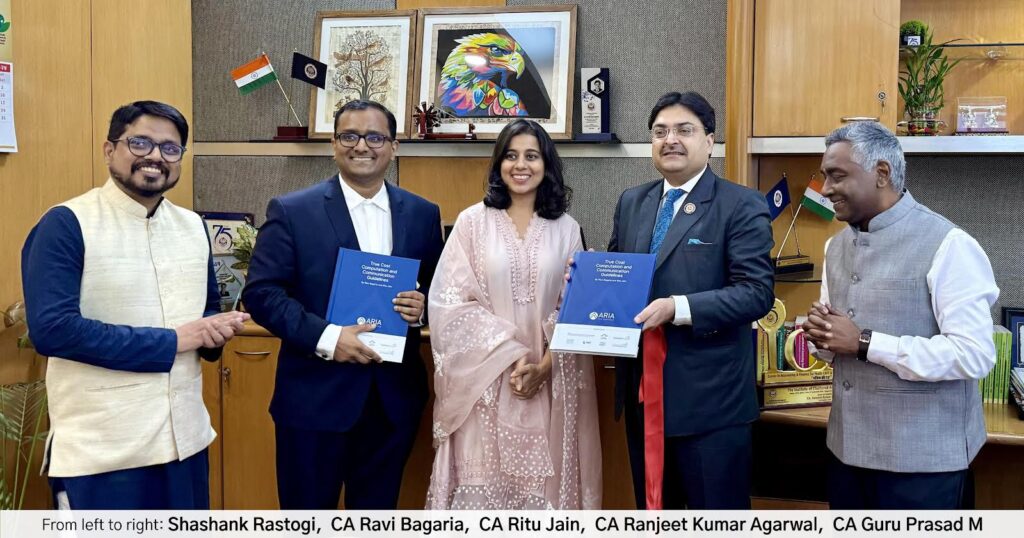Aria CFO Services unveil true cost guidelines to foster greater trust and transparency in the social sector
NewsTeam9/9/2024
New Delhi - 9 September: NGOs in India often struggle with accurately computing and communicating their “true costs”—the complete costs required to sustainably run organisations while working towards their mission. To address this gap, Aria CFO Services, led by CA Ravi Bagaria and CA Ritu Jain has launched the “True Cost Computation and Communication Guidelines for NGOs in India,” in a bid to strengthen the country’s social sector. The guidelines were unveiled in the presence of distinguished Chartered Accountant Ranjeet Kumar Agarwal, which took place in New Delhi earlier this week.

These guidelines arrive at a crucial juncture as India advances towards its vision of Viksit Bharat (Developed India). NGOs, which contribute nearly 2% to India’s GDP, play an indispensable role in fostering inclusive and equitable development. However, these organisations face considerable challenges in financial management and transparency. Hence, these guidelines serve the purpose to alleviate these challenges.
Key Highlights of the Guidelines:
- First-of-its-kind collaborative effort involving funders, NGOs, and Chartered Accountants
- Addresses a critical fundraising and communication gap: 83% of NGOs struggle to recover indirect costs, while 68% of funders have indicated their flexibility in funding these costs (Bridgespan Group survey, 2023)
- Developed with input from 7 support partners Center for Advancement of Philanthropy, Educate Girls, Guidestar
- India, Guru and Jana Chartered Accountants, PKF Sridhar & Santhanam LLP, Tejas Merh and The Bridgespan Group’s Pay-What-It-Takes India Initiative,
- Developed under the aegis of Pay-What-It-Takes India movement, a collaborative movement of Funders, NGOs, and support organisations to achieve a robust & resilient social sector
- Tested and refined through workshops with over 35 NGOs
The comprehensive guidelines equip NGOs with essential tools to create accurate and transparent budgets, standardise financial information presentation, and enhance resource and funding management. This initiative is poised to foster greater financial transparency, improve governance practices, and catalyse stronger partnerships between NGOs and funders.
Appreciating the effort, CA Ranjeet Agarwal, a prominent Chartered Accountant, said, “For India to achieve the goal of Viksit Bharat, funders need to support NGOs working for the most marginalised and disadvantaged communities. I hope these guidelines will help such NGOs strengthen their financial capabilities and operate with enhanced efficiency.”
“NGOs and funders need to work as equal partners to contribute more effectively to the nation’s social development. Pay-What-It-Takes India is a collaborative movement to help develop such partnerships, and these guidelines mark an important step in that direction.” Added Shashank Rastogi, Partner at The Bridgespan Group.
The guidelines address several key areas, including:
What truly constitutes true cost for an NGO True cost calculation methodologies Standardized presentation of financial information Incorporating compliances while computing true cost Strategies for communicating financial information to stakeholders By promoting trust and transparency, these guidelines aim to unlock more funding for NGOs, enabling them to tackle complex social problems more effectively and contribute to sustained social change.